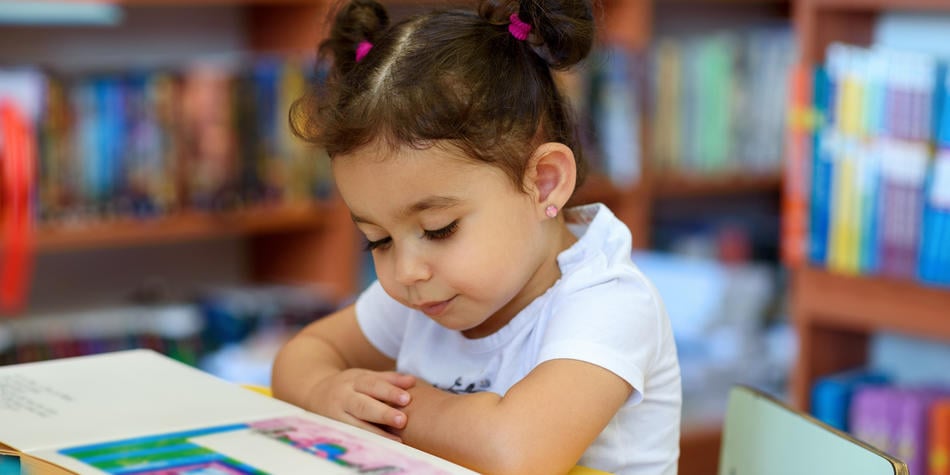Perhaps you’ve always known you wanted to be a teacher. Perhaps you’ve always known you wanted to work with kids. Even so, there are a few things to consider when deciding which degree will help you achieve your dream.
For example, would you rather spend time with younger or primary school-aged kids? Do you have ambitions of becoming an educational leader? And what length of time are you willing to spend studying?
We asked Dr Natalie Robertson, a lecturer in early childhood education and course director of the Bachelor of Early Childhood Education and Bachelor of Early Childhood and Primary Education to run us through three popular Deakin degrees that could be the right fit for you.
Bachelor of Early Childhood Education
This degree’s singular focus is on early childhood teaching and learning, predominantly with children between birth and five years old. During the degree, students undertake work placements in a variety of settings including long day care or sessional kindergarten.
Dr Robertson says the course is a popular option for early childhood educators who have a Diploma of Early Childhood Education and want to upgrade their qualifications.
‘This course provides them with greater career opportunities, more pay and more agency. They’re also able to fast-track their studies and complete their course in 18 months because they get recognition of prior learning.’
She says many students fit their studies in around their work in the industry, either studying the degree part-time or working part-time.
Graduates of this course usually become kindergarten teachers. However, you could also go on to become an educational leader or a director of an early childhood service such a long-daycare centre.
Find out more about Deakin’s Bachelor of Early Childhood Education.
Bachelor of Early Childhood and Primary Education
This combined degree, which is studied over four years full-time, provides graduates with the qualifications to become an early childhood educator as well as a primary school teacher.
‘It provides them with the knowledge to teach children aged from birth right through to 12 years of age in Grade 6,’ Dr Robertson says.
If you like the idea of working in either early childhood centres or primary schools, this course provides more flexibility in your future career choice.
‘Students might know that they want to work with and teach children, but they might not know what age group they’re interested in yet, so it gives them experiences across different age groups and different settings,’ Dr Robertson says.
As with the Bachelor of Early Childhood Education, graduates can eventually become leaders if interested – but this time in either childhood or primary school settings.
In both courses, you could also become a pre-school field officer, work in local council or with the Department of Education and Training in writing policy.
Dr Robertson adds that students considering this degree often wonder if they’ll be able to get a job as a primary teacher with a dual degree. That’s a big yes.
‘The course is brilliant in that it promotes transferability of knowledge and teaching practice between early childhood and primary settings.’
Find out more about Deakin’s Bachelor of Early Childhood and Primary Education.
Bachelor of Education (Primary)
Wondering how to become a primary school teacher?
Deakin’s four-year degree gives graduates the teacher qualifications required to work in government, Catholic or independent primary schools.
‘There’s no early childhood element to this course and graduates would be able to teach from foundation (prep) to grade 6,’ Dr Robertson says.
However, graduates may also find work in other fields including community services, government agencies and not-for-profit organisations.
In the course, students focus on primary teaching and curriculum, and discover what it takes to teach and lead young people.
Aside from developing solid teaching skills, you will also learn how to teach a wide range of subjects and specialisations – from maths to science, and arts to literacy.
One of the highlights of this degree is putting what you’ve learnt at uni into practice in the classroom during Deakin’s Professional Experience Program.
You’ll also get the option to combine your personal interests with a range of curriculum areas.
Upon graduating, you’ll have the confidence and ability to be ready to step into the classroom and make a difference to students.
Find out more about Deakin’s Bachelor of Education (Primary).
A summary of Deakin’s options
So, how can you choose which course is right for you?
‘If you want to have lots of agency and autonomy over your teaching practice and curriculum, early childhood teaching really allows that to happen. I definitely suggest anyone who enjoys creativity would be best suited for early childhood,’ Dr Robertson says.
And if you’re not 100% sure which path to take?
‘The combined degree would be the best choice, because students can have the experience of working across multiple age groups – they can learn a lot about themselves, learn a lot about children and who children are at different stages of life,’ Dr Robertson says.
One other thing to keep in mind: if you’re learning towards early childhood, your wallet may thank you, with the Victorian government offering a range of attractive financial incentives and scholarships to address shortages in the sector.
Study at Deakin and gain the leadership skills needed to become a professional educator. Check out these three courses:
Bachelor of Early Childhood Education

